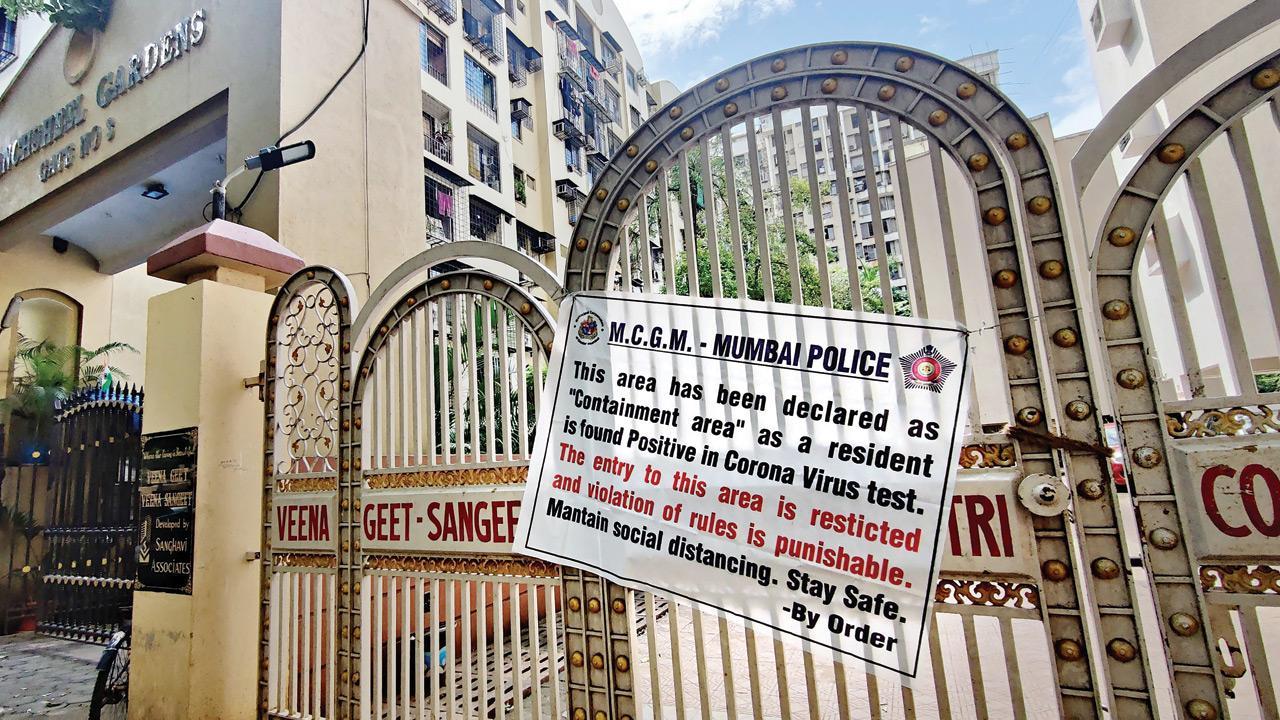Last month, on using the method on 188 public hospital patients, the BMC found 128 were infected by the Delta variant, two by the Alpha variant, 24 by Kappa variant and the remaining by the common virus

Veena Geet Sangeet Gangotri Yamunotri building in Kandivli West which was declared a containment area last month after 17 people tested positive in it. Pic/Nimesh Dave
Covid-19 patients admitted to private hospitals across Mumbai, are now part of the Brihanmumbai Municipal Corporation (BMC)’s genome sequencing process. The report of the samples taken last week is expected early next week. Genome sequencing is crucial to understand the changes in the structure of the virus over time.
ADVERTISEMENT
It is a method to determine the genetic make-up of an organism. It helps study and ascertain the types of variants infecting people. Suresh Kakani, additional municipal commissioner, said, “This time, we have included patients with a long stay in private hospitals. We have collected around 370 samples.”
The genome sequencing machine can process 384 samples at one go. Last time, BMC had collected the samples from public hospitals who were critical, and admitted for a long period. They also included samples from people with international travel history. Kakani also said that now the BMC will include samples from areas where more cases are found.
The corporation's own genome sequencing machine was inaugurated on August 4 at Kasturba Hospital. Last month the genome sequencing included 188 samples. Of these, 128 patients were infected by the Delta variant of Covid-19, two were found to be infected by the Alpha variant, 24 by the Kappa variant and the remaining were infected by the common Covid virus.
Changed testing protocol
With the test positivity rate (TPR) remaining around 1 per cent, the BMC has changed its protocol of testing. “Earlier, we used to test high-risk people or close contacts of the patients on day 5 or day 7 or whenever they developed symptoms. Now, we are going to test them on day 1 or day 2,” said Kakani. He also said that occupants of sealed buildings will undergo screening tests. “All the occupants of sealed buildings will now undergo the RT-PCR test irrespective of whether they fall in the high-risk category,” said Kakani.
Also Read: Best prevention is vaccination and Covid-appropriate behaviour
Presently Mumbai has 50 sealed buildings and 1,564 sealed floors. Mumbai has 3,718 active cases out of which 42% are asymptomatic and 47% are symptomatic and 11% are critical. The BMC has introduced 266 centres where people can voluntarily get the RT-PCR test. It is also going to have rapid antigen test (RAT) desks at crowded public places like fish and vegetable markets, malls, etc. where people will be randomly screened.
 Subscribe today by clicking the link and stay updated with the latest news!" Click here!
Subscribe today by clicking the link and stay updated with the latest news!" Click here!






